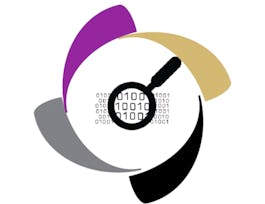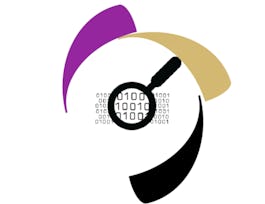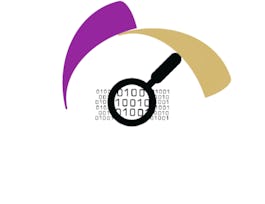Welcome to Introduction to Applied Cryptography. Cryptography is an essential component of cybersecurity. The need to protect sensitive information and ensure the integrity of industrial control processes has placed a premium on cybersecurity skills in today’s information technology market. Demand for cybersecurity jobs is expected to rise 6 million globally by 2019, with a projected shortfall of 1.5 million, according to Symantec, the world’s largest security software vendor. According to Forbes, the cybersecurity market is expected to grow from $75 billion in 2015 to $170 billion by 2020. In this specialization, you will learn basic security issues in computer communications, classical cryptographic algorithms, symmetric-key cryptography, public-key cryptography, authentication, and digital signatures. These topics should prove especially useful to you if you are new to cybersecurity Course 1, Classical Cryptosystems, introduces you to basic concepts and terminology related to cryptography and cryptanalysis. It is recommended that you have a basic knowledge of computer science and basic math skills such as algebra and probability.


Classical Cryptosystems and Core Concepts
This course is part of Introduction to Applied Cryptography Specialization
Taught in English
Some content may not be translated


Instructors: William Bahn
16,436 already enrolled
Included with 
Course
(399 reviews)
98%
Details to know

Add to your LinkedIn profile
6 quizzes
Course
(399 reviews)
98%
See how employees at top companies are mastering in-demand skills

Build your subject-matter expertise
- Learn new concepts from industry experts
- Gain a foundational understanding of a subject or tool
- Develop job-relevant skills with hands-on projects
- Earn a shareable career certificate


Earn a career certificate
Add this credential to your LinkedIn profile, resume, or CV
Share it on social media and in your performance review

There are 4 modules in this course
This module covers an introduction of the specialization and instructors, covers what to expect from this educational experience and also, an introduction to the course Classical Cryptosystems and Core Concepts.
What's included
3 videos3 readings
In this module we present an introduction to cryptography, differentiate between codes and ciphers, describe cryptanalysis, and identify the guiding principles of modern cryptography. After completing this course you will be able to read material related to cryptographic systems, understanding the basic terminology and concepts. You will also have an appreciation for the historical framework of modern cryptography and the difficulty of achieving its aims.
What's included
4 videos9 readings2 quizzes1 discussion prompt
Delving deeper into cryptanalysis, in this module we will discuss different types of attacks, explain frequency analysis and different use cases, explain the significance of polyalphabetical ciphers, and discuss the Vigenere Cipher. When you have completed this module, you will have an appreciation of the different types of attacks and under what kinds of situations each might be applicable.
What's included
6 videos11 readings2 quizzes1 discussion prompt
Continuing on our exploration of the fundamental concept of cryptography, this module will explain the Hash Function, its purpose and application, potential attack vectors, and the importance of hash functions on cryptographic design. Upon completion you will be able to understand the role that hash functions play in cryptography and how cryptographic hash functions differ from other types of hash functions.
What's included
5 videos8 readings2 quizzes1 discussion prompt
Instructors
Offered by
Recommended if you're interested in Computer Security and Networks

University of Colorado System

University of Colorado System

University of Colorado System

University of Minnesota
Why people choose Coursera for their career




Learner reviews
Showing 3 of 399
399 reviews
- 5 stars
67.66%
- 4 stars
23.80%
- 3 stars
5.01%
- 2 stars
2%
- 1 star
1.50%
New to Computer Security and Networks? Start here.

Open new doors with Coursera Plus
Unlimited access to 7,000+ world-class courses, hands-on projects, and job-ready certificate programs - all included in your subscription
Advance your career with an online degree
Earn a degree from world-class universities - 100% online
Join over 3,400 global companies that choose Coursera for Business
Upskill your employees to excel in the digital economy
Frequently asked questions
Access to lectures and assignments depends on your type of enrollment. If you take a course in audit mode, you will be able to see most course materials for free. To access graded assignments and to earn a Certificate, you will need to purchase the Certificate experience, during or after your audit. If you don't see the audit option:
The course may not offer an audit option. You can try a Free Trial instead, or apply for Financial Aid.
The course may offer 'Full Course, No Certificate' instead. This option lets you see all course materials, submit required assessments, and get a final grade. This also means that you will not be able to purchase a Certificate experience.
When you enroll in the course, you get access to all of the courses in the Specialization, and you earn a certificate when you complete the work. Your electronic Certificate will be added to your Accomplishments page - from there, you can print your Certificate or add it to your LinkedIn profile. If you only want to read and view the course content, you can audit the course for free.
If you subscribed, you get a 7-day free trial during which you can cancel at no penalty. After that, we don’t give refunds, but you can cancel your subscription at any time. See our full refund policy.

